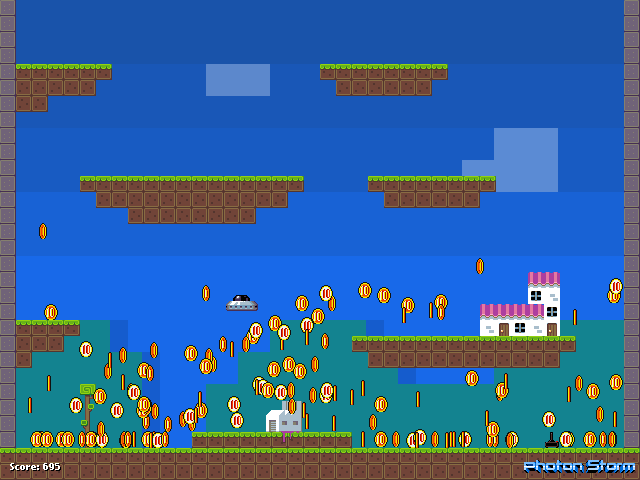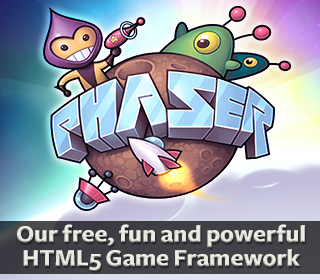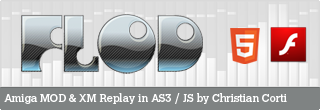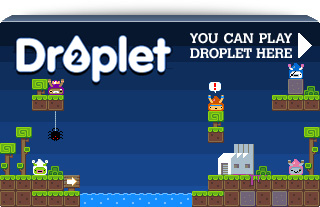Posts Tagged ‘plugin’
-
Flash Game Dev Tip #15 – Collectable Particles
30th Nov 20117
Tip #15 – Collectable Particles in Flixel
This tip was born from a question I see raised in the Flixel forums often: How do you use an FlxEmitter to emit more complex particles. I.e. ones that are animated or have their own logic, and how could a player interact with those particles?
We’ll solve this by creating a simple demo. In it you can fly a small ufo around a tilemap using the cursor keys. Where-ever you click with the mouse a burst of particles will be created, in this case an explosion of coins. If you fly into them you can collect them. By grabbing the source code and reading through this you should then be able to modify this approach for your own game.

By the end it’ll look something like the above. Hit the jump for the full details, source code and example swf.
-
Flash Game Dev Tip #14 – How to create a Flixel plugin
1st Nov 2011
Tip #14 – How to create a Flixel plugin
When Adam created Flixel 2.5 he added support for plugins. Probably due to my constant harassing him on GTalk about it, but he did it all the same! And lots of my Flixel Power Tools take advantage of them. But it’s not always easy to know when you should be creating a plugin and what benefits you get from doing so. So here’s my guide to Flixel plugins. Along with a tutorial and playable demo on creating a plugin that makes a tinted mirror effect from any given FlxCamera that looks like this:

Where do plugins live?
Plugins live in the org.flixel.plugin package, which naturally maps to this folder:
org/flixel/pluginin your file system. You can create the class file either directly in here, or create your own folder inside “plugin” and then create your classes within that. This is a good way of avoiding naming conflicts with other plugins found online, so I’d recommend it.
Name your class file to match what the plugin does as best you can. Try not to be obscure. If the plugin is responsible for launching a wave of aliens then call it AlienWaveLaunch, so when you come back to your code later on, you know what it’s going to do before you’ve even opened the file. It’s common for Flixel plugins to have Flx at the start of their name, i.e. FlxAlienWaveLaunch, but this is not a technical requirement, so name it whatever you feel like.
The different types of plugin
A plugin can work in one of three ways:
- Registered Core Plugin – Automatically updated by Flixel every step
- Standard Class Plugin – Updated only when directly called in the game code
- Static Class Plugin – Typically offers utility methods
Which one you need is entirely up to your requirements. Here are some examples to help you differentiate between them:
Hire Us
All about Photon Storm and our
HTML5 game development services
Recent Posts
OurGames
Filter our Content
- ActionScript3
- Art
- Cool Links
- Demoscene
- Flash Game Dev Tips
- Game Development
- Gaming
- Geek Shopping
- HTML5
- In the Media
- Phaser
- Phaser 3
- Projects
Brain Food



